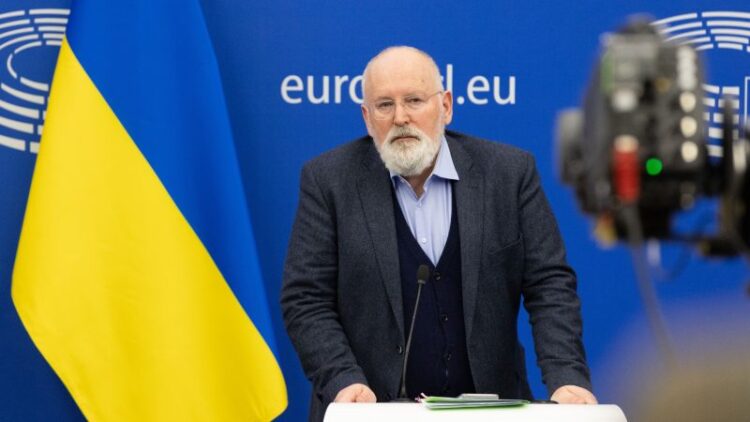
by Mahamad Hassan Malin
The relationship between Russia and Europe dates back a long time and is characterized by distrust and moments of crisis. Since the collapse of the Soviet Union, the energy sector has become the new battlefield on the continent. Many policy makers argue that European reliance on Russian energy sources may eventually lead to geopolitical advantages for Russia over Europe. Some others, who don’t agree with this view, think that Russia could use energy as to diminish the Western influence on its domestic affairs. EU and Russia’s relations have been at loggerheads for a while because of their different and incompatible interests in the region. Russian expansionism, the rising energy prices for Europe and the European sanctions imposed on to Russia have contributed to exacerbate the situation even more.
EU’s Energy Dependence Problems
In recent years, energy imports have increased due to lower domestic production of non-renewable energy (coal, gas, oil and nuclear). Natural gas prices in Europe have risen considerably during the second half of 2021, well before the current crisis in Ukraine, not least due to a strong surge in post-pandemic demand. On 21 December 2021, prices reached a peak of €180 per megawatt-hour, hovering below €50 per megawatt-hour throughout the summer. This must be added up to comparatively low levels of natural gas storage. On 22 February 2022, on the eve of Russia’s invasion of Ukraine, the German government announced the suspension of the authorization process for Nord Stream 2, withdrawing the supply security report previously submitted to its national regulator, the Bundesnetzagentur.
Robin M. Mills, CEO Of Qamar Energy, stated that the ongoing Russia-Ukraine conflict might ruin European energy supply in at least two ways. This includes the main gas pipelines that travel through Ukraine and transport over 13% of Europe’s total imports, as well as the southern section of the Druzhba oil pipeline, which goes via Belarus to western Ukraine and then on to Slovakia, Czechia, and Hungary. The second way is that Russia would intentionally and deliberately halt supply as part of a military-political operation. This would have a huge impact on the gas flow via Belarus to Poland, as well as the Nord Stream pipeline, which runs beneath the Baltic Sea and directly to Germany. The new Nord Stream 2 pipeline, which would eliminate most of Ukraine’s transit obligations, is technically complete but has to get Germany’s legal approval yet to begin operations.
Responses to Russia’s aggressions
In reaction to Russia’s invasion of Eastern Ukraine, German chancellor Olaf Scholz stated: “In addition to the sanctions aimed at cutting Russia off from international financial markets and e-commerce, Germany’s federal government has decided to halt certification of Nord Stream 2 until further notice”. Nord Stream 2 is a pipeline that runs through the Baltic Sea and is designed to transport natural gas from Russia’s world-leading supplies to Europe’s expanding consumer demand.
Cutting off the pipeline on a long-term period is a difficult choice to make because it would also affect all the countries supplied with Russian gas. Germany’s current suspension might be lifted if the West and Russia reached an agreement. This has made tenacious transatlantic and European reactions questionable, and left Russian President Vladimir Putin the chance to catch the opportunity to reopen the pipeline. France’s position has been more ambiguous. French President Emmanuel Macron said that “the pipeline should not increase Europe’s reliance on Russian gas. French energy minister Bruno Le Maire, however, recently criticized the idea of canceling it’. Lithuania, Estonia, Latvia, and Ukraine, non-EU and non-NATO members, have been harshly opposing the new pipeline project for years because Poland was left out the arrangement. This was compared to what happened with the 1939 Molotov-Ribbentrop non-aggression pact that divided Poland between Nazi Germany and the Soviet Union.
Critiques to Germany
According to Matthew Christopher Kolasa, PhD Researcher in International Relations, University of St Andrews, a number of critics have claimed that Germany is exploiting its constitution to prioritize its energy demand over treaty responsibilities and European unity. They criticize Germany’s actions and words that, in their opinion, have already shattered the trust of its Central European allies. During the negotiations which took part before Russia’s invasion of Ukraine, Germany has stood out for its unwillingness to sanction Russia. Moreover, it is still refusing to provide Ukraine with weapons and has prohibited Estonia from supplying any heavy artillery produced in Germany.
Energy Price Surge
Australia’s Minister for Industry, Energy and Emission Reduction Angus Taylor said, while its country was experiencing regional energy disruptions, that “the conflict between Russia and Ukraine has exacerbated global oil price pressures, which are felt all over the world. We understand that many Australian families and companies are feeling the pinch at the pump when they go to fill up their car as a results of this. […] While we cannot influence international price surges, we are actively monitoring things with the IEA and therefore the US and are prepared to require steps to help alleviate these pressures”.
It is reasonable to say that Russia’s aggressiveness against Ukraine has highlighted Europe’s dependence on Russian energy sources, and prompted European and non-European countries who felt threatened to look for alternatives. Global commodities markets have been unsettled by the ongoing Ukraine crisis, which has underscored how Europe’s energy insecurity can be passed on to other countries worldwide as a consequence of European heavy sanctions against Moscow.
